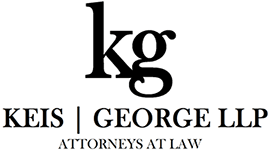Minimum policy limits
The minimum liability policy limit in Illinois for automobile insurance is $25,000/$50,000/$20,000. This means that in the event of a covered loss, individuals are required to carry policy limits of $25,000 for injury or death of one person in an accident, $50,000 for injury or death of more than one person in an accident, and $20,000 for damage to property of another person.
Frequently, insurers will encounter claims where their insured’s damages alone are in excess of an at-fault party’s limits. Even more frequently, an at-fault party has caused damage to multiple parties that in total, are in excess of the at-fault party’s liability limits.
Avoid bad faith claims
An insurer can be held liable for failure to settle within policy limits before or during trial if it acted in bad faith. Olympia Fields Country Club v. Bankers Indemnity Insurance Co., 325 Ill. App. at 673 (1945). In Illinois, courts have long found a duty for insurers to act in good faith in responding to settlement offers. The consequence of bad faith is that an insurer may be liable for the full amount of a judgment against their policyholder, inclusive of any excess to their policy limit, if the duty is breached by refusal to settle. Haddick v. Valor Insurance, 198 Ill. 2d 409, 414 (2001).
Elements of a bad faith claim
The sequence of events begins when insurer assumes defense of their policyholder due to a third party claim against a policyholder for an amount in excess of the policy limit. Should an offer to settle be made within the applicable policy limit, the insurer must take steps to shield their insured from an excess finding. An insurer can be on the hook for the amounts in excess of their limit where there is a reasonable probability of: (1) recovery in excess of the limit; and (2) liability being found against the insured. Haddick, 198 Ill. 2d at 419. The rationale for this remedy is that a policyholder relinquishes control of the defense of these claims to their insurer. In doing so, the policyholder relies on their insurer to conduct a proper defense.
Subrogation attorneys
Significantly, the duty for insurers to act in good faith only arises once a settlement demand at or within a policy limit is made.
